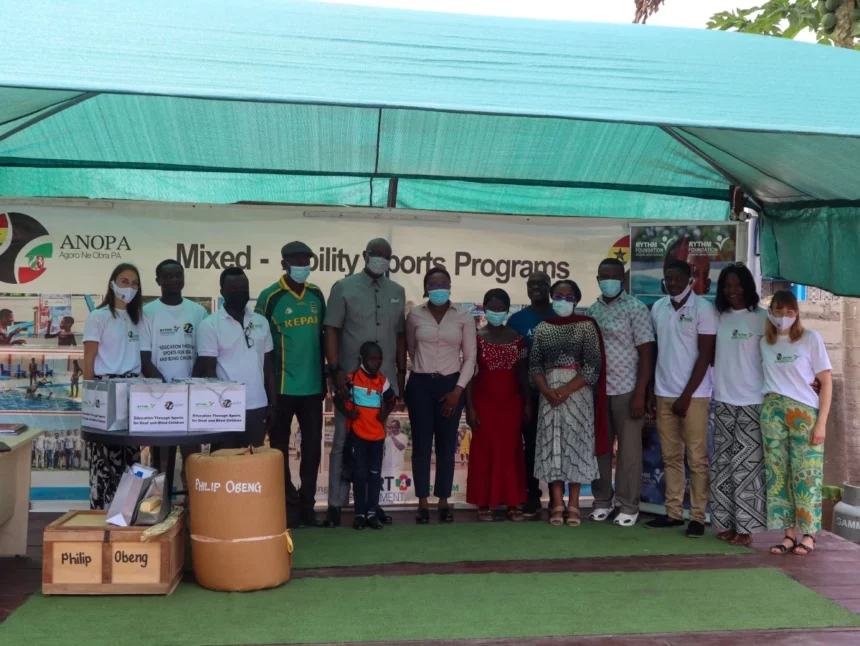By Malou T. Caluza
In 2009, the United Nations established World Humanitarian Day to recognise the invaluable contributions of those who bring aid and relief to people impacted by war, poverty, injustice, and disasters worldwide. I am grateful to all the incredible people who sacrifice selflessly, comfort and care for those who need it most, and make it their priority to ensure the safety and welfare of our communities.
As governments manage the weight of a global pandemic, the climate crisis, political conflicts, and increasing economic and social inequalities, private businesses can and should be a powerful and effective ally in creating a better, safer, and more sustainable world for us all.
Traditionally, we have looked to governments and international bodies to guide and deliver humanitarian services. This year, however, when I think of the tremendous challenges facing our planet, I am encouraged by the growing number of corporations taking a more prominent role.
Corporations have at their disposal vital resources that can grow and multiply humanitarian efforts. And communities worldwide are increasingly looking to companies for leadership in overcoming social challenges.
The power of workplace volunteerism is undeniable. Not only is it an effective means to make a real social difference, but essential to building a culture of empathy and giving for internal stakeholders.
A Deloitte survey on volunteerism found that a volunteerism culture leads employees to believe that the company offers a better working environment than those who do not. Additionally, the study reported that volunteer activities provide an improved sense of purpose, alongside contributing to employee wellbeing.
According to another study, volunteering strengthens employee bonds, encouraging better teamwork and leading to higher engagement and productivity.
Volunteer programmes also help align a corporation’s values with the values held by its team members, fostering a feeling of shared purpose and pride in the company. A company can attract and retain highly qualified employees by demonstrating a commitment to social responsibility. The 2020 Deloitte Gen Z and Millennial Survey revealed that 61% of this demographic want to work for a company that encourages volunteer activities.
Volunteering can also help a company cultivate the next generation of influential leaders. By allowing employees to develop personal growth, new skills, and interests outside their daily work routines, we can encourage our team members to push themselves to new levels of responsibility and take on new leadership challenges.
Beyond benefiting communities, volunteer programmes positively affect a company’s bottom line. For example, one study found that employee volunteer programmes improve morale, with 89% of workers agreeing that organisations encouraging volunteering have a better overall work environment.
As a senior executive in a global organisation, I believe in the potential for real, sustainable change that we can achieve by dedicating employees’ immense talents and energies to meeting the challenges facing our communities. QNET’s Founders have been clear on the company’s mission since day one: to drive sustainable business objectives while also making a difference by giving back to our communities. They understood that generating effective, positive change starts with imbuing that belief in people’s hearts and actions – and that starts internally with our employees.
I am proud to say that we are an organisation that successfully transformed our Founders’ commitment to contribute positively to society. We implemented a groupwide policy where our employees dedicate a minimum of 16 hours each year to volunteer in their community to be eligible for their annual bonus.
This innovative employee programme was born out of our philosophy of RYTHM (Raise Yourself To Help Mankind). Built on our core values of empowerment, volunteerism, and resilience, our Corporate Social Responsibility arm, RYTHM Foundation, strives to unlock the potential within each of us to rise above our challenges.
Through RYTHM, our staff give their time, skills, and talents to efforts such as reforestation in our Green Legacy initiative, helping special needs children, and reaching out to underserved communities. Our employees act as forces for good in their communities, empowering individuals and communities to overcome the obstacles in their lives so they, too, can help others. In this way, we can transform an entire community. And with one community at a time, we can change the world.
That culture of RYTHM is self-perpetuating. It spreads from person to person, inspiring others to be the change they want to see in the world. Often, our team members go well beyond the minimum requirement, some volunteering as much as 30 hours annually, motivated by the positive changes they see in their community. Since the programme launched in 2013, our employees have contributed over 100,000 hours to volunteering in more than 20 countries.
Whether cleaning plastic waste from a beach, caring for residents of an elderly home, or spending time with children in an orphanage, those in leadership positions have ample opportunity to make a difference within and beyond office walls. Together with RYTHM Foundation, I am proud that we have touched the lives of many throughout the African region, South Asia, and Southeast Asia. Imagine the potential for change in the world if every corporation encouraged and enabled their employees to dedicate their time and skills to supporting humanitarian efforts in their communities.
Our company was founded to achieve more than just financial success. Our Founders built QNET to become a global entity that creates lasting change for good in the world. Our highly skilled and motivated employees share this goal. And we are achieving this by lending our greatest resource – our people – to our communities.
I encourage all companies to consider implementing a similar programme in their organisations. Together, we can change the world.






